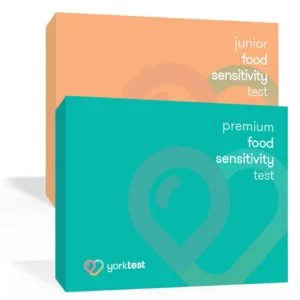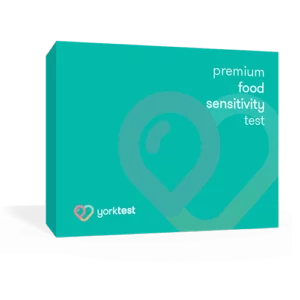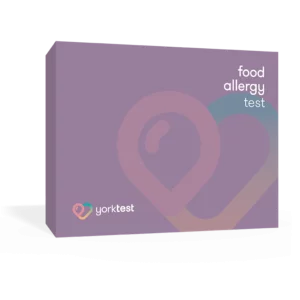- What is a milk allergy?
- What are the symptoms of a milk allergy?
- Can you be allergic to milk later in life?
- Is there a test for milk allergies?
- Share this infographic on your site
- Choose the test that’s right for you
- What our customers say about us on Trustpilot
- Customer Testimonials
- Emily Catterall, 24: IBS
- Sally Gunnell OBE, 52: Energy levels
- Join us on social media
When we think about milk we tend to think about all the products that are made from milk such as, yoghurts, butter, ice cream, cheese, chocolate etc. It is the white liquid we drink that is produced by female animals, most readily available from cows, sheep or goats. Milk provides the primary source of nutrition for babies before they are able to digest other types of food.
In many cultures of the world, especially the Western world, humans continue to consume milk beyond infancy; humans are the exception in the natural world for consuming milk past this stage in life. But what happens when you’re experiencing some uncomfortable side effects when you consume milk?
What is a milk allergy?
A food allergy is an adverse reaction involving your immune system which mistakenly treats the milk protein as a threat. Usually it takes just a short period of time for symptoms of a milk allergy to show, often within 2 hours. Without medical help, this may lead to anaphylaxis that can be fatal.
What are the symptoms of a milk allergy?
Milk allergy symptoms can come on very rapidly. Symptoms include:
- Skin rashes or hives
- Swollen tongue or lips
- Wheezing and chest tightness
- Itchy, red and watery eyes
- Difficulty breathing
- Vomiting, feeling sick of diarrhoea
It’s important to consult your doctor if you feel that you may have a milk allergy. The most common allergy tests are a skin-prick test or a blood test to look for the presence of immunoglobulin antibodies (IgE). A milk allergy can be managed by avoiding dairy products and the administration of epinephrine (adrenaline) if symptoms become severe.
You can read more on a milk allergy here.
Can you be allergic to milk later in life?
Yes, you can. A milk allergy is common in infants and young children, but it is thought that over 80% of children outgrow their allergy by the time they’re 16. Though a milk allergy can sometimes be outgrown, there is a chance that this could stay with you for life.
Is there a test for milk allergies?
If you feel that you could be allergic to milk, it is important to visit your doctor. At your consultation, your doctor may refer you for a skin-prick test. During this test, your skin is pricked and exposed to minute traces of proteins found in milk and monitor a reaction. You may also have a blood test which measures your immune system’s response to milk. This measures the amount of IgE antibodies in your blood.
What is lactose intolerance?
Lactose intolerance is a condition which cannot be outgrown or cured. It’s a common digestive problem where the body is unable to digest lactose, which is a sugar found in milk products. Generally we are born with lactase enzymes which breakdown the sugar in the digestive tract. However, over time, the body may not be able to produce enough of this enzyme, leading to lactose intolerance.
What are the symptoms of lactose intolerance?
Signs of lactose intolerance can often be mistaken for a milk protein intolerance and/or a milk allergy, though a person can suffer from both a milk protein intolerance and lactose intolerance. Symptoms could begin between 30 minutes to 2 hours later and could include:
- Abdominal bloating, pain and cramps
- Flatulence and gas
- Nausea
- Gurgling in the stomach
- Diarrhoea
Please note, constipation is not a symptom of lactose intolerance.
How does lactose intolerance differ from a milk allergy and a milk protein intolerance?
Good question! It can be very confusing to wrap your head around the difference of all three conditions which involve troublesome symptoms when milk is consumed. Milk allergy and milk intolerance are reactions to the protein found in milk, whereas lactose intolerance is a digestive reaction to the sugar found in milk.
If a person with lactose intolerance drinks milk, they may suffer from bothersome symptoms, similar to a milk protein intolerance. Milk allergy, on the other hand, can be potentially fatal; not the case for milk intolerance or lactose intolerance.
We’ve created this infographic below to show you the difference between the three conditions:
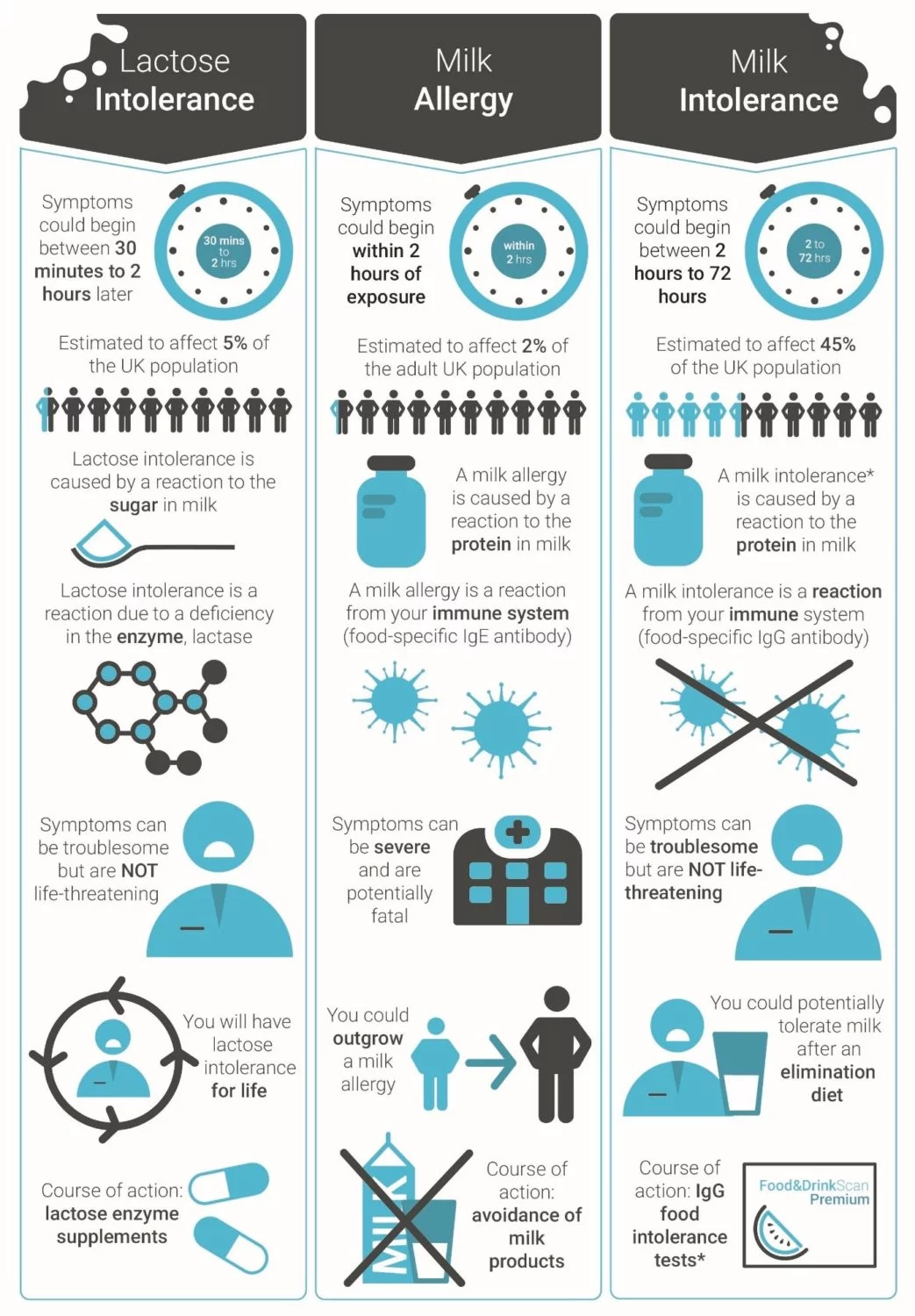
Share this infographic on your site

What is milk intolerance?
Did you know it is estimated that 45% of the population suffer from a food intolerance†? Unlike a food allergy where symptoms come on rapidly, food intolerance symptoms can manifest relatively slowly. Symptoms are not life-threatening, unlike a food allergy, but they are often bothersome and can affect your quality of life. A milk intolerance is not necessarily lifelong and milk can sometimes be reintroduced after a period of elimination.
What are the signs and symptoms of milk intolerance?
Milk (protein) intolerance causes a delayed response, taking up to 3 days to cause symptoms, and can result in a wide range of symptoms, such as:
- Irritable bowel (IBS)
- Bloating
- Migraines/headaches
- Joint pain
- Respiratory problems
- Fatigue
- Skin issues, such as acne and eczema
If you have a milk protein intolerance then you should avoid all animal milks as the milk from cows, sheep and goats are all very similar, unless they are individually tested.
For more information on dairy intolerance, you can read our advice page to get the lowdown on how to test for a milk intolerance, how you can get enough calcium when you’re avoiding milk, and milk-free foods. Click here.
It’s also worthwhile to note that as individuals, what one person might react to may not be the same as another person. Here at yorktest, we call this your own ‘food fingerprint’.
If you think that you might be intolerance to milk, there could be other food intolerances you may have which you may not realise. It is estimated that 45% of people have some kind of food intolerance and, on average those with positive reactions react to about 5 different foods which may or may not include milk. Therefore, it’s worth considering an IgG food intolerance†test.
How do you test for a milk intolerance?
Though milk intolerance symptoms can be less severe than an allergic reaction, they can still be very disruptive to a person’s life. If you have consulted your doctor over your symptoms and they’ve ruled out any underlying conditions, perhaps you should take a closer look at your diet.
yorktest, Europe’s leading provider in food intolerance testing, has been providing tests privately for over 35 years. Their tests include a check for milk-specific IgG antibody reactions – this includes cow’s milk, goat’s milk and sheep’s milk, depending on the type of test.
What is a food intolerance test?
yorktest’s food intolerance programmes analyse your IgG reactions to up to 208 food and drink ingredients. It’s a simple home-to-laboratory finger prick test which provides nutritional consultations with a registered nutritional therapists and extra support to optimise your diet.
Where can I get started?
Here at yorktest, we want to make it as easy as it can be. We’ve developed our FirstStep test and our full food intolerance programmes, so you can be on the road to optimal health.
Premium Food Intolerance Test: This indicator test provides a simple yes or no result for a food intolerance†. If a positive reaction is identified, you can progress onto one of the full food intolerance programmes to see which individual food triggers you have, including milk-specific IgG. You will also be provided with post-result aftercare, including content material and nutritional consultation(s).
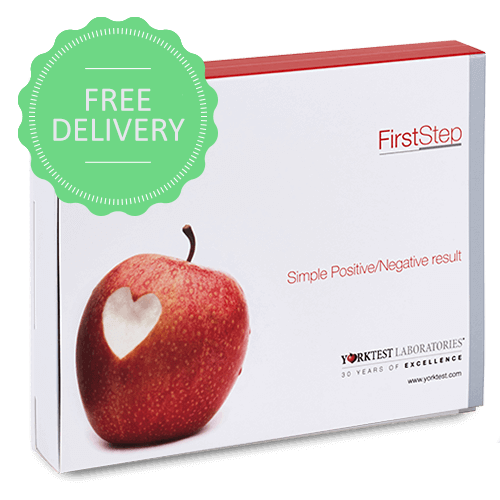
Further support
Whether it’s to ask a quick question or to purchase a test, you can find us on live chat, or you can call our friendly Customer Care team on our free phone number: 0800 074 6185.
Liked this? You might also be interested in:
Dairy intolerance advice page – Want to read more on dairy? This page is your guide to dairy intolerance – including real-life testimonials from people who have reacted to cow’s milk, recognising milk-free foods, and the explanation of the difference between lactose intolerance and a milk protein intolerance.
5 food swaps for your food intolerances – did you know the average person reacts to more than one food and drink ingredient? Find out what other alternatives you can have to support your elimination diet, following a yorktest programme.
Balancing your nutrients – There’s no need to worry when it comes to losing nutrients on an elimination diet, so long as your diet is balanced and varied. This article explains what other alternatives are out there which includes, calcium, iron and a range of vitamins
†yorktest define food intolerance or sensitivity as a food-specific IgG reaction
yorktest recommend that you discuss any medical concerns you have with a doctor before undertaking a yorktest programme
yorktest define Food Intolerance as a food-specific IgG reaction. Our information is intended to provide nutritional advice for dietary optimisation. yorktest do not claim to treat or cure symptoms and recommend that you discuss any medical concerns you have with a doctor before undertaking a yorktest programme.
Choose the test that’s right for you
What our customers say about us on Trustpilot
Customer Testimonials
Emily Catterall, 24: IBS
“I feel like I’m in a new body! I’m so much healthier. I can’t tell you how amazingly different I have felt since!â€
Sally Gunnell OBE, 52: Energy levels
“I’m not waking up as much during the night, not as bunged up in my nose and I’ve got so much more energyâ€


